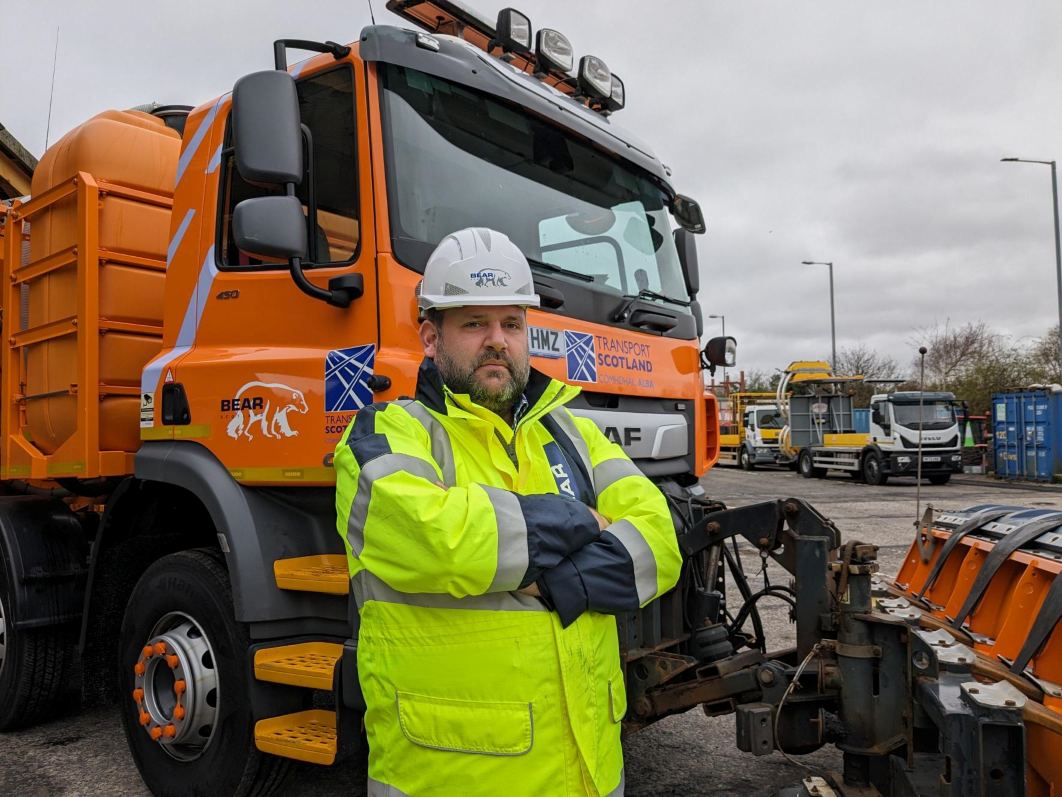

BEAR Scotland’s Severe Weather Manager David Wright reflects on this winter’s challenges and describes how our teams helped keep North West roads moving.
What were the most significant weather challenges faced by the North West this winter?
The ever-changing weather conditions, from warm to cold, windy to calm, snow to rain. The number of named storms far exceeded previous years, making this one of the toughest winter periods I can recall.
What were some of the most impactful severe weather incidents BEAR responded to in the North West this winter?
An example of this is Storm Gerrit in December. On one hand the A9 was closed due to snow, while at the same time the A82 from Fort William to Inverness faced a different challenge. We were dealing with a record number of fallen trees along that stretch. It was such a big job that we had to close the A82 for nearly three days, to keep workers safe as they tackled clearing the road – a task they completed incredibly quickly in the circumstances. At the same time, we were dealing with flooding at the A9 further south. Our work is all about keeping Scotland moving and behind the scenes, there’s a lot of science and planning that goes into our winter response.
What did BEAR do to help keep the roads moving this winter?
We worked tirelessly around the clock to try and keep the roads clear. We proactively planned and delivered winter treatments, sending resources to the areas forecast to be worst affected.
How much salt was used this winter? How does this compare to last year?
Last year we used over 40,000 tonnes of salt. This year, so far (April 2024) we have used over 30,000 tonnes with a month still to go.
Did BEAR introduce anything this winter to improve its weather response efforts?
We introduced 24-hour WSDO (Winter Service Duty Officer) coverage regardless of temperature. WSDOs analyse detailed weather forecasts and road temperatures to ensure treatments are carried out as necessary.
What lessons were learned from this winter’s challenges?
Not to think winter is just about low temperatures, snow and ice. This winter has shown us that nothing is impossible when it comes to Scottish weather, regardless of the season.
How do you prioritise response efforts during severe weather events, especially when more than one happens at once?
Resources are sent to each event, with extra resources for incidents which affect people.
What’s the main message you’d like to give the public about how to be safe on roads in adverse weather?
If you feel it is necessary to travel in adverse weather conditions, make sure you’re prepared, ensure you have adequate supplies with regards to food and clothing and plenty of fuel. Ultimately, only make a journey if it is really required.